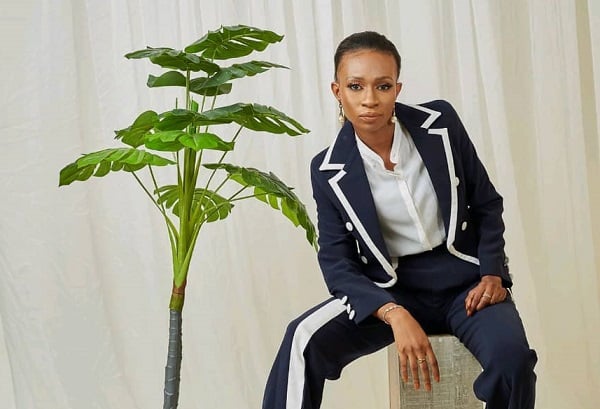Developers in tech and creatives in entertainment cannot create in isolation. The creatives need developers for innovative platforms while techies need them to determine the business trajectory. However, all the efforts put together would likely result in wasted billions if legal backing is left out, says Oyinkansola Fawehinmi, a Nigerian entertainment lawyer also known as Foza Billion.
Despite limited precedents in the Nigerian entertainment law, the trailblazing quantum leap of the 29-year-old in 2013/2014 brought significant improvement and appeal to the space.
In this interview with TheCable’s Lifestyle’s KUNLE DARAMOLA, Fawehinmi, the founder of Technolawgical Partners, an entertainment hub, talks about what recognition means to her, the intersection of intellectual property, entertainment and tech, and personalised strategy on how to break the bias in a misogynistic sector.

What do recognition and identity mean to you?
For me, recognition is literally encouragement. You have to work hard and do a lot of background work. Recognition always reminds me to do more. It encourages me. Identity on the other hand has become a currency. At this stage of my career, it is needed for finance.
People will invest in people they trust. It wasn’t a focal point before now, but currently, it matters. My yardstick for behaviour has been the bible, I’m always going to be in sync with God. I understand that I’ll fall and rise. I also understand that I’ll have my downtime. It is a lifestyle that requires constant attention.
At what point did you decide to go for entertainment law?
Law was my first choice of career but entertainment law came when I was in the 300 level. Right out of law school, it’s been entertainment law all the way.
Entertainment law is not totally new but amongst the conventionalists in robes, it’s avant-garde, what are the challenges you faced in this career path?
It wasn’t quite popular at first. Specialisation wasn’t a thing at the time, and there is this philosophy that lawyers can do everything which I don’t agree with. So that kind of informs my trajectory.
At the time I came into the industry, the space was short of entertainment lawyers, you can call me a trailblazer. It was Seyi Lawal of Chocolate City and a couple of others that were kind of pseudo-operating in the industry.
It was hard and I had to figure things out but it was a way to prove and defend that it was a career path. I didn’t have a network of lawyers and clients to work with. I had to invest in technology to solve a lot of existential problems.
What are the lessons you’ve been able to pick up from your experiences as road manager, advisory council chairman, and leading companies?
I have learnt relevant soft skills — how to interact and deal with people. I always have this “resting-bi**h-face,” it is a sort of not frowning, just focused countenance. Initially people thought I was just being snobbish as a road manager and that was one of the challenges I faced.
I didn’t know how to be diplomatic but I have learned how to understand people’s differences. I also had to learn conflict management, which is a huge skill. It is the ability to identify problems and procure solutions to them.
As a president of a company, COVID-19 taught me that being financially prudent is a massive skill. It takes a lot.
As a practitioner, what future do you envisage for IP in Nigeria?
Nigeria has only focused on oil and gas but a deep and innovative look has to be taken to other sectors. The booming rise in the youth population is a testament to that. And it is hard to neglect that there is a boom in the creative industry.
IP services tech, music and film. The practice transcends the world of entertainment. I knew about IP when I was in 300 level. It is going to become bigger with the teeming youth population that we have. It is also obvious that tech is leading in the area. So, the government needs to look into that.
Promoting this goal requires constant interaction and curiosity. Tech and creative people cannot create in isolation, it must be done with legal backing.

What are your views on women’s inclusion, particularly the 2022 theme ‘Break The Bias‘?
I’m not going to call for inclusion. My position is creating a new system and deliberately bringing like minds into it.
The entertainment space is male-dominated and they are fraudulent, mediocre, and are bullies, eventually they have issues they are dealing with.
In achieving my goal, I have engaged in institution mentorship which is specifically for women. I also know that in terms of media and press or when on a panel, I ensure there is a balance. I make sure to recommend one more woman if I’m the only one on the panel. I have access to a lot of women, and I mention their names in rooms, referring them for jobs.
As my capacity can presently take, I manage women. I put up projects that are productive for them and I always try to reach out to women doing amazing things.
You can reach Oyinkansola Fawehinmi on her LinkedIn profile, Twitter page, or on fozadoza.com.
Copyright 2025 TheCable. All rights reserved. This material, and other digital content on this website, may not be reproduced, published, broadcast, rewritten or redistributed in whole or in part without prior express written permission from TheCable.
Follow us on twitter @Thecablestyle

